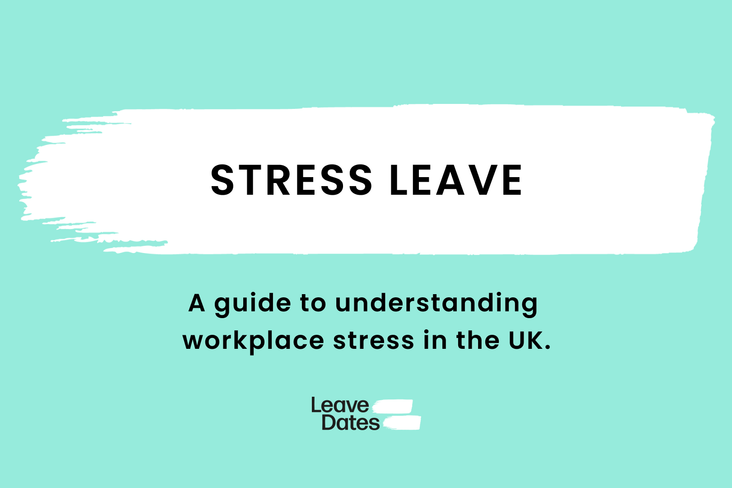Work can be a huge source of stress for people. Financial pressures, workload issues, tight deadlines, difficult clients (or colleagues). These are all unpleasant but expected (to an extent) parts of working life. Just those boring grown-up things.
But another source of workplace stress is not very grown up at all – bullying. Exclusion. Discrimination. This isn’t something we should expect to see or put up with at work, yet many of the circa 18 million work days a year that are lost to poor mental health can be linked back to unfair treatment at work. What a waste.
Stress leave is not a fun one to ask for, or to grant. It’s a sign that something is not working – in more ways than one. So how can managers and business owners handle unfair treatment to keep people well at work?
Table of Contents
- What is unfair treatment?
- Understanding impact
- Communication
- Transparency and trust
- Early Intervention
- Managing the fallout
- Key takeaways
What is unfair treatment?
Unfair treatment at work is where staff are treated in a way that is unjust, discriminatory or undermines their rights under UK employment law. This can result from the actions of colleagues, or decisions made by employers. The most serious cases will relate to discrimination based on ‘protected characteristics’, as set out by the Equality Act 2010. These include age, race, gender, religion, disability and sexual orientation. The ‘unfair’ tag would also cover things like:
- Unfair dismissal
- Unsafe working conditions
- Unreasonable workload
- Abrupt changes to contract terms
- Rejecting or withholding training or promotions without good reason
- Unequal pay for the same work
- Subtle bias
- Exclusion
- Bullying and/or harassment
None of which sounds great. But is this kind of thing really going on in 2025? Sadly, yes. For a harmonious and productive workforce, there must be fair treatment across the board. Making sure this is the case should be a top priority for managers and business owners.
We are all human, and that comes with a certain amount of inevitable conflict. We can be hurt and offended. We can misunderstand and feel misunderstood ourselves. Personalities clash. Sometimes we just don’t like each other. Short of replacing their entire staff with unthinking, unfeeling robots, what can managers do to tackle the difficult situations that will inevitably arise from time to time?
This article will outline some strategies to manage unfair treatment and keep your team engaged and focused on the task at hand. This will help to avoid things like high staff turnover, stress leave and disciplinary processes.

Understanding impact
The first thing that managers must do is to recognise the impact of unfair treatment. Whether real or perceived, it can lead to anxiety, upset and even burnout if it’s ongoing, which may result in staff taking stress leave – or leaving altogether.
Stress leave has a role in giving an affected employee a break and helping them to recover, but it is not in itself a solution. Frequent or long-term stress leave suggests unresolved issues. It will also place strain on other employees who may have to cover absence, potentially creating even more discontent and escalating tensions. Left unchecked, this will continue to impact team dynamics and morale.
Rather than breaking the cycle, it will just pull more people in and get harder to manage over time. If you lose control, it’s easy for gossip to take hold. This is why it’s key to act quickly, and decisively.
So what’s the solution?
Communication
Good management and open communication can stop the ripple effect, keeping people at work, maintaining morale and nurturing a healthy and trusting workplace.
Both perceptions and actual instances of unfair treatment often arise due to a lack of understanding of a situation. This in turn is normally due to lack of information, caused by poor communication – of policy, a change, an event or situation. This is great news, because it’s an easy thing to fix.
Strong communication is key to setting expectations, creating transparency, forging strong team bonds and making sure everyone understands company policy and decisions. Managers can be proactive in explaining changes early, being open to questions and concerns, and dealing with issues directly. Encourage people to speak openly and share any worries. This helps to spot misunderstandings before they turn into frustration, and stops issues growing over time.
Transparency and trust
Along with open communication, transparency is essential for building trust. Managers should foster a culture where all staff feel able to speak up without fear. This could be through regular team meetings, one on one check-ins, online surveys – whatever it takes to ensure everyone has a voice and a safe space to raise issues and be heard.
For example, if there is a change to a policy or process, this should be introduced and explained ahead of time. Explaining why the change is being made, the expected outcome and what it will mean for people’s day to day, and inviting questions on it, will go a long way to avoiding confusion.
An ‘open door’ management approach means people will feel able to raise and discuss any issues directly and early on with their line manager. This is much better than letting frustration build and issues escalate to the point of needing more formal interventions. If staff trust that their managers will listen to them and take fair action, they are more likely to seek solutions instead of just gossiping in the canteen.

Early intervention
When signs of unfair treatment are seen – maybe a report of bullying, or a change in behaviour – act as soon as you can. Try to avoid bias while you gather info, and don’t jump to conclusions. Often, situations arise because of miscommunication or misunderstanding, rather than intentional hurt – so try first to see if that’s the case. Quietly observe team behaviour and have discreet private conversations with those involved, staying neutral and respectful to get honest insight rather than fan the flames.
If it’s found that there has been unfair treatment, be diplomatic but firm. Set clear expectations for behaviour and outline the impact and consequences of not meeting those. Remind all concerned of your workplace values.
Swift and appropriate action will show that management and the company are committed to maintaining a fair work environment. It also sends a warning to others that such actions won’t be tolerated.
Managing the fallout
Even with best intentions and proactive action, situations can occur that result in someone taking stress leave due to bullying or unfair treatment. In such cases, you will need to manage the team’s response. Diplomacy and discretion are essential. Do not disclose any specifics, as this only fuels gossip. Remain balanced and professional, explaining that X is on leave and stressing the need to respect others’ privacy.
Remind the team of the need to support each other and remain focused on their roles. Reinforce and reward positive, respectful behaviour in the team and encourage cohesion rather than cliques. This all helps to stop the spread of negativity.
For small businesses with limited resources, dealing with complex HR issues can be hard without a big team. There are some free and affordable resources that can help:
- ACAS provides guidance and free training resources on how to handle bullying and disputes/conflict in the workplace
- Mind has loads of free resources on workplace mental health , and offers training and guides to help managers address stress and create a culture of openness
- EAPs can be cost-effective solution for giving staff access to confidential support and advice
- Many local authorities and charities offer affordable mediation services for conflict resolution
Key takeaways
However it manifests, unfair treatment at work can have a serious impact on staff wellbeing and morale. These can be tough and sensitive issues for HR and line managers to deal with, especially if there is internal conflict, resources are limited or the situation is complex.
With stress such a huge issue for UK adults , and a big cause of sick leave, unfair treatment at work is the last thing anyone needs to add into the mix. But when managers prioritise clarity, consistency and (two-way) communication, this builds a culture of trust where the whole team feels informed and respected. These are not conditions in which claims of unfairness tend to occur, or actual unfairness is seen or tolerated.
If you can create a work culture that is broadly seen by all to be fair, and where any issues are dealt with quickly and fully, this will go a long way to reducing work-related stress. By extension, this will result in less stress leave, happier and healthier staff, and higher productivity.




